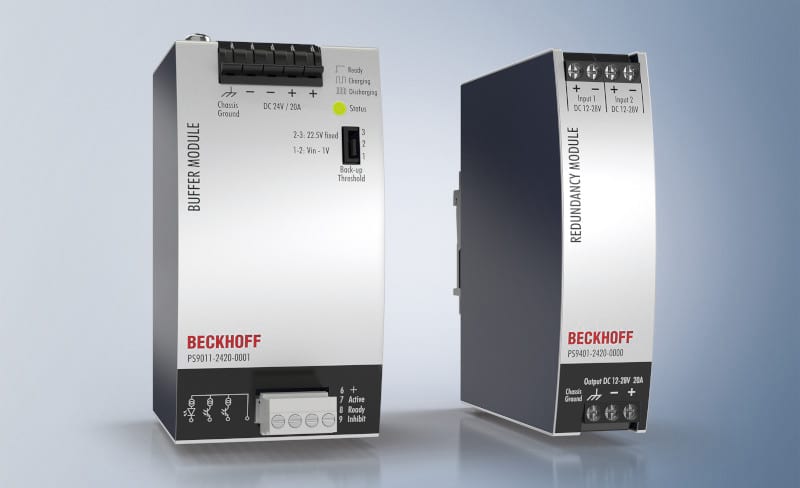24/48 V DC power supplies are universally required in every machine and plant and are therefore critical to reliable operation. With the new PS9xxx supplementary modules for the PS power supply series from Beckhoff, another efficient option is now available for avoiding machine and plant downtime and, as a result, increasing system availability.
With the PS power supply series, the corresponding supplementary modules and the CU81xx UPS series, Beckhoff offers a complete and coordinated range of solutions for reliable power supply in the 24 and 48 V DC range. The range of functions of the PS power supplies now extends further with new buffer and redundancy modules.
Buffer modules prevent power disturbances
The PS90xx buffer modules prevent disturbances caused by voltage dips and fluctuations in the electrical grid or by peak loads, so that the power supply units and connected loads can operate reliably and without failure. For this purpose, the buffer modules store energy via maintenance-free electrolytic capacitors and release it as required. In this way, power failures, for example, can be effectively bridged.
The buffer modules require no control wiring; they can be added in parallel to the load circuit at any point. In addition, multiple modules can be connected in parallel to provide more power or further increase the power failure bridging time.
Redundancy modules avoid system downtime
The PS94xx redundancy modules create a redundant fail-safe supply network. In such a system, two or more power supply units are connected in parallel and decoupled by one or more redundancy modules. This prevents an output-side short circuit in one of the power supplies from short-circuiting the output voltage.
The redundancy modules use efficient MOSFET technology for decoupling, which reduces voltage drops and thus power dissipation. Accordingly, the devices have significantly lower power loss compared to conventional diode modules.

